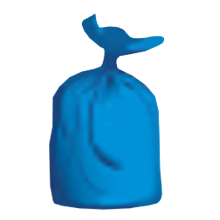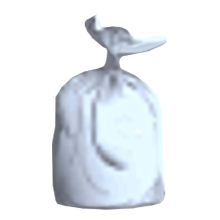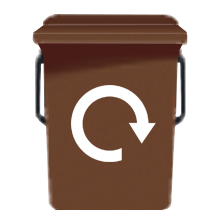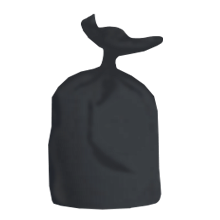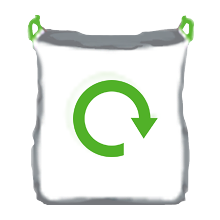This information is designed to give individuals who are starting up in business an overview of the position for tax (which goes to General Revenue) and contributions (which goes to the Social Insurance fund), and to help them understand what they need to do.
If you are setting up a limited company this information isn't relevant to you, please click here for tax information for companies.
If you start a business in Guernsey, you need to tell us so that your income tax assessment and contribution payments can be amended. If you were employed before you started your business, then the tax and contributions would, up to now, have been taken from your wages and sent in to us, but now you are working for yourself, you are responsible for making the payments needed.
What do I need to do first?
- The first thing you need to do is tell us that you have started a business. We will need to know:-
- What you are doing for example, builder, consultant, photographer etc.;
- The date you started the business;
- What date you will be preparing the first set of accounts to, will this be for the first 12 months of trading, or to the end of the calendar year? (Even though the Guernsey tax year is 1 January - 31 December, accounts don't have to be done to 31 December. The first accounts can end on any date so long as they don't cover more than 18 months, or more than 2 calendar years);
- An estimate of the profit you expect to make in the first accounting year;
- If you will be claiming expenses or not;
- If you are employing anybody.
- You can tell us all of the above by completing our 'Commencing Self-Employment Form', which can be found in the downloads section.
What happens once I have told you I have started a business?
- Income tax
- You will be charged income tax on the profits you make.
- If the first accounts are prepared for a period ending in the first calendar year of the business, we will need to issue an assessment to you for that year, which will include the estimate of business profit you have provided. The assessment will show what tax you need to pay, based on this estimate, and the dates the payments are needed.
- If you later decide your estimate is too high, then you can revise your assessment by contacting us.
- Where accounts are prepared for a period ending in the second calendar year of the business, no profits will be included in the assessment for the first year, but the assessment for the following year will include the full profits from the date the business started.
- Example 1
- Business starts 1 April 2019, the first accounts are prepared to 31 December 2019 and the next accounts to 31 December 2020:
- Your assessment for the Year of Charge 2019 will include the profit for the period 1 April 2019 to 31 December 2019.
- Your assessment for the Year of Charge 2020 will include the profit from 1 January to 31 December 2020, and later years will include the profit for the 12 months ending on 31 December in that year.
- Example 2
- Business starts on 1 April 2019, the first accounts are prepared to 30 June 2020 and the next accounts to 30 June 2021.
- Your assessment for the Year of Charge 2019 will not include any business profit.
- Your assessment for the Year of Charge 2020 will include the profit for the period from 1 April 2019 to 30 June 2020.
- Your assessment for the Year of Charge 2021 will include the profit from 1 July 2020 to 30 June 2021, and later years will include the profit for the 12 months ending on 30 June in that year.
- An interim assessment will be issued to you each year, including an estimate of your business profit for that year, either when your income tax return for the previous year is dealt with, or in May, whichever comes first. The tax charged will be payable quarterly.
- If you prefer to spread the payments over the full year, please details of how to contact the debt management team and useful information click here.
- Contributions
- Your contributions will be based on the estimated profit figure you provided, until the actual income tax figure is available. When the actual figure is known it will replace your estimated amount, and either an account or a refund will be issued to you, depending on the difference between contributions paid on the estimated earnings, and what is due on the actual figures.
- Your contributions for the second, third and fourth year that you are self-employed will be based on your earnings from the second year of business. By the fourth year your contributions are calculated on earnings from 2 years previous and your contribution liability will continue on this basis, until the business ceases.
- Example
- Business starting in 2019:
Contribution Year Income Tax figures used 2019 2019 2020 2020 2021 2020 2022 2020 2023 2021 2024 2022 - If no estimates are provided you will be charged the maximum rate.
- You will be sent a contribution card for the period to the end of the current quarter, when you start the business, and then further cards will be sent to you quarterly (each of these covering 13 weeks). The cards show the weekly contribution needed and the total amount due and you will need to return the card and payment to us within 15 days of the end of the quarter.
- You can arrange to pay by direct debit, and if you do, you will not be sent a contribution card. Instead, once you have signed the direct debit instruction, the payment will be arranged with your bank or building society. You can pay monthly (the payment will be taken on 15th of the month) or quarterly (the payment will be taken on 15th of the month following the end of the quarter). You will be told in advance of the amount and date of payment and you can cancel the direct debit at any time.
What records do I need to keep?
- It is important that you keep proper records of all business income and expenditure from the beginning. You will need to keep all invoices, receipts, etc. We may need to see them at any time, whether or not you have an accountant dealing for you, but please don't send them to us unless you are asked for them.
- The Director of the Revenue Service has produced a booklet titled 'Keeping, Maintaining and Retaining Records for Income Tax Purposes' which explains the type of records you should keep and how long they have to be kept for. This legislation affects everyone.
Do I need an Accountant, or can I do my own accounts?
- You can prepare your own accounts if you feel able to do so and we have developed two templates to help customers who don't use an accountant.
- The Trading, Profit and Loss Account ("TPLA") can be used to produce the first set of accounts for a business, and can also be used by businesses whose total income, before deducting business expenses, is greater than £15,000 a year.
- The Three Line Account (3LA) can be used for businesses with total income, before deducting business expenses, of £15,000 or less, but it can't be used to produce the first accounts.
- Both of these templates are available in the download section of this page.
- Revenue Service staff can't prepare accounts for you and so, if you don't feel able to do the accounts yourself, you will need to appoint an accountant to do them.
- Accounts certified by a suitably qualified person may be requested, at any time, if the Director feels they are needed.
What can I claim for?
- You can claim for expenses so long as they are incurred wholly and exclusively for the purposes of the business, so the expenses allowed will vary depending on what the business does.
- Repairs to equipment, rent paid for business premises, use of telephone and utilities, the cost of materials, amounts paid to subcontractors, wages paid to staff and motor vehicle expenses are some examples of what you may be able to claim for.
- Adjustments will need to be made if any of the items include any personal use, as you can't claim for personal expenses. For example, if your telephone is used partly for business calls and partly for private calls, then only the part of the telephone bill relating to the business would be allowed. If the vehicle is used for the business but also as the family vehicle, then again, an adjustment would need to be made to the amount being claimed.
- You also can't claim for what you take from the business as your own "wages." Please be aware you will be taxed on the profit made by the business, not what you draw from it.
- Expenditure on capital items, such as motor vehicles, computer equipment, machinery, etc., is not allowable as a direct deduction, but instead an annual allowance can be claimed for depreciation (wear and tear) of the item. Details of the rates of annual allowances for various items are available at www.gov.gg/tax under 'Tax rates and Allowances'.
- The cost of initial training to put you in the position of being able to carry on the business is not allowable, but refresher courses and updating of knowledge would be.
Income tax adjustments
- As well as any adjustments for personal use (see the section "What can I claim for?" above), if your business consists of the buying and selling of goods, it will be necessary to complete a stock take at the end of your financial year and make a closing stock adjustment to purchases. Adjustments will also be required for opening and closing debtors (amounts owed to you) and opening and closing creditors (amounts owed by you). It may also be necessary to value work in progress, and if you do not feel able to do this yourself, you will need to appoint an accountant.
What if I employ somebody?
- If you are going to have people working for you then you should contact our Employers section on 225700. They will set you up as an employer and provide you with the information you need, which will explain how to calculate and deduct tax and contributions, when paying wages. An Employer's Guide can be downloaded from our website.
- The tax and contributions you deduct, and the quarterly returns, have to be sent to us by the following dates:
- Period 1 January to 31 March - by 15 April
- Period 1 April to 30 June - by 15 July
- Period 1 July to 30 September - by 15 October
- Period 1 October to 31 December - by 15 January
- Penalties will be applied if the amounts are paid late.
- If you have been set up as an employer but do not pay any wages during a period, you must let us know, so that we know payments are not due.
What do I do if I pay a subcontractor?
- A subcontractor is someone that you pay to do part of a job for you, that you are responsible for. For example, a builder who is building a house may use a subcontractor to do the electrical work.
- If you pay any subcontractors over £1,000, you will need to provide their full name, address and details of the amount that you have paid them, when you complete your income tax return.
- If a subcontractor provides labour only, (that is they don't supply any materials - for example, in the case of the builder who uses a subcontractor to do the electrical work, the builder provides all of the electrical items (sockets/cables etc.,) that are needed), then you are responsible for deducting income tax and social security contributions, before payment is made to the subcontractor, in the same way as for any other employee.
What do I do if I stop running my own business?
- If you stop working for yourself you will need to contact us and tell us the date on which the business stopped trading.
- If you have been employing anyone you will need to pay their final income tax and contributions by the dates listed under "What if I employ someone?" and let our Employers Section know the date that you stopped employing.
- You will need to produce a final set of accounts to the date that you stopped trading and submit these with your income tax return so that an assessment can be issued including your final business profit.
- If you are going to be employed, you will need to let us know the name of your new employer so that a coding notice can be sent to them. If you are not going to be working for a couple of months you may need to be treated as "non-employed" for contributions and you will need to contact the contributions team to discuss your options.
